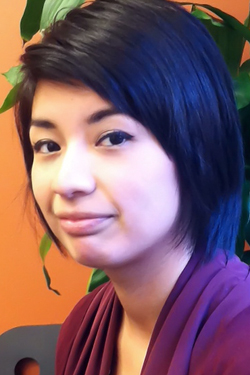
I was 2 years old when my parents, wanting nothing more than to improve their lives—and mine, brought me to America from Mexico. We soon headed to the San Francisco Bay Area, where my parents held a number of jobs—construction, janitorial, washing dishes in restaurants—saving enough money to move away from the couch we shared in a friend’s home into our own one-bedroom apartment.
School became a priority, with me working hard not only to earn high grades, but to eventually make it into the University of California, Davis with money that my parents had saved for my education. But I constantly walked around in fear, wondering whether the immigration stances of my teachers and peers would affect their view of me. Adding to this confusion were the stories being told by my peers and the media. I grew up in a world where immigration raids were taking place at work, school, and even in the “safety” of homes. For me, the time period between 5 and 6 a.m.—when immigration raids are usually conducted in homes—would be filled with much panic and anguish, as I lay awake in my bed—afraid that either my parents or I would be next.
I saw discriminatory laws, such as California’s Proposition 187, Arizona’s Senate Bill 1070, Alabama’s House Bill 56 and Secure Communities, go into effect, instilling anxiety in all immigrants, whether documented or not. I also saw legalized attacks on the lesbian, gay, bisexual, transgender, and queer community in the form of “Don’t Ask, Don’t Tell” and the federal Defense of Marriage Act (DOMA). And while I acknowledge that our communities have had their share of triumphs, the blows have made growing up in this world as an undocumented queer woman of color a constant struggle.
Since I was told at the age of 16 that I was an undocumented immigrant, an alarming, constant fear has lived deep inside of me. However, on December 15, 2012, everything I had felt, everything I had known was turned upside down—my life had changed. Late that afternoon, I received a text message from U.S. Citizen and Immigration Services (USCIS) that would, for the first time in years, have me feeling at ease. As soon as I realized the extent of what the text message meant, I immediately rushed to my computer to check my case status. As soon as I saw the word “approved,” I handed the computer over to my partner, who immediately had tears of joy in her eyes. It was the response to my application for President Obama’s new Deferred Action for Childhood Arrivals (DACA) program, which allows young people who were brought to the country as children to apply for relief from deportation and for two-year renewable work permits.
I checked my DACA approval status again and again. With shaky hands, I grabbed my phone to call my parents. Their reactions were just as I had expected. While my father congratulated me and sighed in relief, my mother started to cry. She told me that my news was the best Christmas and birthday present she had ever received.
Throughout the rest of that day, I had a series of random thoughts pop into my head. What are the hours for the local Social Security Office? Should I have my bangs to the side for my driver’s license photo? Will leasing an apartment become an easier process? Will I still feel slightly nervous anytime I see a police officer? And although I have known all along that this is all temporary, that night I went to sleep calmly knowing that a new life awaited me.
While I am now embarking on a new chapter in my life, I am keenly aware of the many others who still live in constant uncertainty and fear because of our broken immigration policy. In January 2013, federal lawmakers and President Obama outlined principles to reform the immigration system that could help millions of people, creating pathways to citizenship for all immigrants, including the DREAMers, and uniting U.S. citizens and lawful permanent residents with their same-sex partners. As I continue to patiently—and sometimes not so patiently—wait for these things to occur, I am now navigating the process of figuring out who I am—again.
For the longest time, I have known myself to be a woman of color, slowly unveiling my undocumented and queer identities. I have grown accustomed to how my identities function and intersect on a daily basis. But now I have been informed that I am an undocumented queer woman of color WITH a work permit. Seriously? Undocumented AND with a permit?
With my work permit in hand, I recently started working at the National Center for Lesbian Rights as a projects assistant, where I’m specifically helping other LGBTQ immigrants and asylum seekers.
I never thought I would see the day. So, who am I now? I guess I will just have to sit back and let those answers come to me as I navigate my way through a whole new world.
Visit www.LGBTDREAMersStories.com to read more stories about DREAMers.









